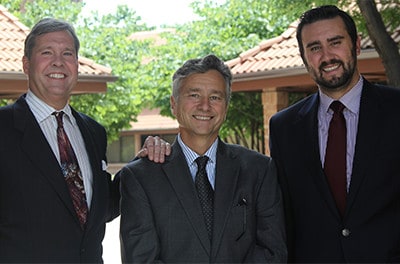 In 2016 alone, The National Safety Council reported an estimated 4.6 million injuries caused by motor vehicle accidents in the United States. Depending on the seriousness of the crash, injuries can range from minor to severe. Shoulder injuries after a car accident are common, and while not horrific in nature, can result in permanent disability and long-term pain to the accident victim.
In 2016 alone, The National Safety Council reported an estimated 4.6 million injuries caused by motor vehicle accidents in the United States. Depending on the seriousness of the crash, injuries can range from minor to severe. Shoulder injuries after a car accident are common, and while not horrific in nature, can result in permanent disability and long-term pain to the accident victim.
The range of potential shoulder injuries resulting from a motor vehicle collision vary greatly. The upper arm, collarbone, and shoulder blade can be affected, as well as the muscles, soft tissues and ligaments surrounding them. Minor injuries would include bruising of soft tissue tears, while more severe injuries would include shoulder dislocation and bone fractures. Some of the most common types of shoulder injuries people may incur during a car accident include:
-
- Fractured bone(s) – Involving the upper arm, the collarbone or the shoulder blade, mobility may be severely limited but fortunately in many cases these fractures can heal without surgery.
- Sprains, Strains or Tears – The muscles and tendons around the shoulder can be stretched beyond their range as the result of an impact, and may take weeks to recover from.
- Torn Rotator Cuff – the fine motor control and stability of the shoulder will be compromised with a rotator cuff tear. These injuries can be more severe and may take months to heal.
- Superior Labral Tear from Anterior to Posterior (SLAP Tear) – Tearing the cartilage on the inner part of the shoulder causes limited mobility and serious pain. Cartilage heals very slowly and treating this injury can be difficult.
- Deep Tissue Bruising – Caused by internal bleeding, the pain resulting from a deep tissue bruise will limit the use of the shoulder until it has healed.
Diagnosis and treatment for these shoulder injuries will vary depending on the severity of the case.
- Broken bones – typically diagnosed with x-rays, but more advanced imaging such as a CT scan may also be required. As long as the bone isn’t too far out of alignment, these injuries may be treated without surgery. If the fracture is severe enough, a surgical procedure for pin, plate or screw placement may be necessary.
- Soft tissue injuries – a MRI may help confirm the diagnosis for the injury, once symptoms and potential causes are identified. Anti-inflammatories may be prescribed, steroid injections may be given, and surgical repairs may be required.
- SLAP Tears – may be treated in non-surgical or surgical methods, including anti-inflammatories to arthroscopic surgery.
Physical therapy and rehabilitation of the shoulder will be necessary in most cases. Rebuilding the strength and mobility of the shoulder will happen gradually over time. A shoulder injury can greatly affect a person’s ability to work, and their quality of life. Treatment of these injuries takes time and medical expenses can add up quickly. As such you need an experienced lawyer on your side to help you obtain compensation.
Contact Our Experienced Arvada Personal Injury Lawyers
 If you or someone you love has suffered a shoulder injury in a car accident in Arvada, Northglenn, Westminster, Thornton, or anywhere in Colorado, it is important to understand the severity of these injuries and the long-term damage that can result. At Hull & Zimmerman, P.C., our committed car accident lawyers are here to help you after an accident. Contact us at (303) 423-1770 or (866) 385-3505.
If you or someone you love has suffered a shoulder injury in a car accident in Arvada, Northglenn, Westminster, Thornton, or anywhere in Colorado, it is important to understand the severity of these injuries and the long-term damage that can result. At Hull & Zimmerman, P.C., our committed car accident lawyers are here to help you after an accident. Contact us at (303) 423-1770 or (866) 385-3505.Our personal injury lawyers have extensive experience representing injured accident victims in Broomfield, Arvada, Superior, Lafayette, Louisville, Erie, Brighton, Commerce City, Northglenn, Westminster, Thornton, Longmont, and throughout Colorado.
